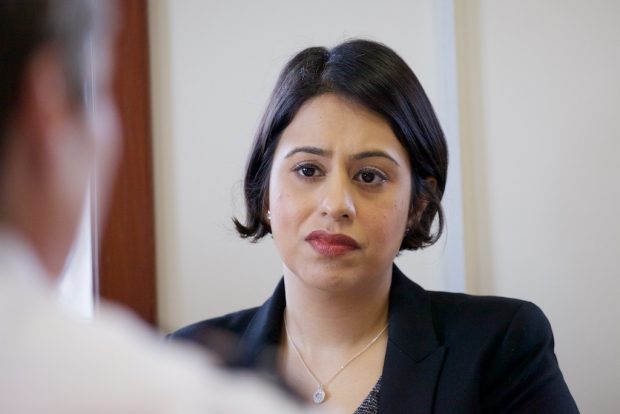
We believe countering extremism is about debate. That's why we have we’ve released batches of evidence ahead of our upcoming report.
Many of you have responded with your views but for those that missed our summer releases, here is a quick run-down.
Call for Evidence summary
We kicked off in July by releasing a summary of the findings from our call for evidence.
Our call for evidence received almost 3,000 responses.
The summary revealed that almost 50% of respondents had witnessed extremism of some sort. Of these, two fifths reported seeing it in their local area and 45% had seen it online.
Read the call for evidence summary on our website.
Speaking at an event with the former Home Secretary Sajid Javid, Sara explained that through our call for evidence we had heard a wide range of concerns.
But she said people are "deeply worried about the non-violent impact of groups exploiting local tensions to spread hate and division".
Read the full speech.
Academic papers
Over the summer the Commission has also released a series of academic papers.
They cover banned group National Action, the modernising and mainstreaming of the Far Right, extremism online, what drives extremism and what more we can do to challenge extremism, including the power of dialogue.
We will be shortly be publishing papers on Islamism and Islamist extremism.
The varied and interesting papers offer us a range of insights we are drawing on as we put the finishing touches to the report. They have also sparked a healthy discussion on social media. If you haven’t read them yet, we encourage you to do so.
All of our published papers can be found on the Commission site.
Building up to the report
We are putting the finishing touches to our upcoming report. It will put forward findings and recommendations following our national conversation on extremism.
Sara set out her thinking in an interview with the Guardian at the Spotlight youth centre in Tower Hamlets.
She made the case for a renewed focus on the most harmful issues outside of terrorism and a whole society response, adding that:
"I feel very strongly that government can’t fix everything. So when we’re talking about challenging extremist narratives, extremist ideologies, for me I think civil society has a huge rule to play in this."
But she added that some of what we’ve heard during our national conversation was part-and-parcel of democratic debate and that our right to be radical and even offensive must be protected. She argued that the overuse of the word ‘extremism’ was a problem.
She said: "We live in a country where we want people to hold different political opinions. I might not agree with your political opinion but we want to live in a country where people have those different political opinions."
We are really excited about the report. The national conversation may be drawing to a close, but the debate has just started.
We'll give you more information on the launch in the coming days.
But before that keep an eye on our Twitter feed where we’re sharing highlights from our last 18 months, and saying thank you to everyone that has supported us as we’ve engaged widely and gathered evidence.
As Sara said in her speech in July:
"Let’s be unashamedly patriotic, proud and positive when we’re talking about countering extremism."
Recent Comments